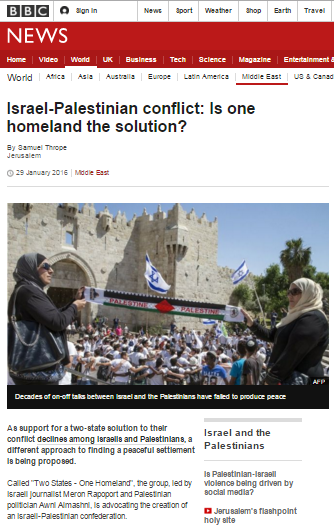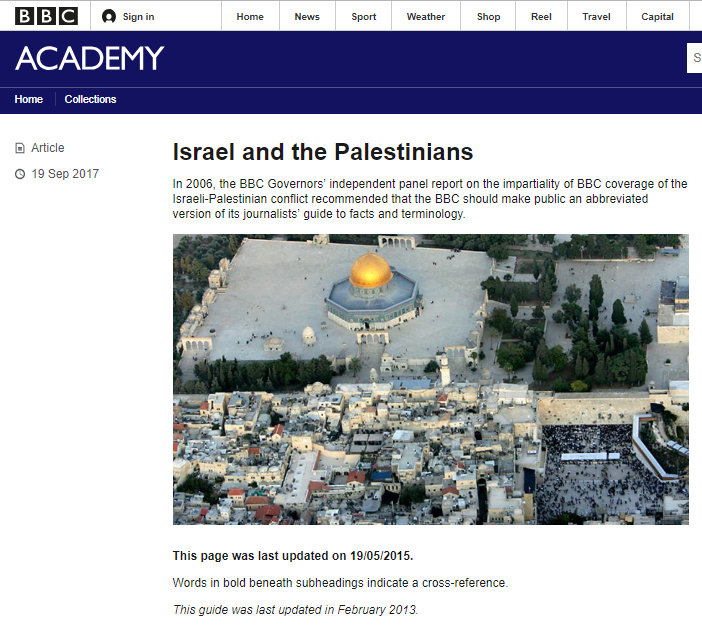h/t DS
On August 27th the BBC News website published an article titled “Gaza conflict: Israeli PM Netanyahu says war was ‘victory’” on its Middle East page. The report opens with various statements from a press conference held by Israel’s prime minister before stating in its seventh and eighth paragraphs:
“On Wednesday, the UN’s World Food Programme said one of its convoys had entered Gaza for the first time since 2007, carrying enough food to feed around 150,000 people for five days.
Fishing boats also ventured out to sea as restrictions were eased.”
Now of course most readers would understand those words to mean that the UN’s World Food Programme has not been able to supply people in the Gaza Strip with food aid since 2007. Given that the report’s previous sentences relate mostly to statements made by the Israeli prime minister and the subsequent sentence uses the words “also [….] as restrictions were eased” in relation to the fishing zone, readers might well also assume that the fact that a WFP convoy had not been able to enter the Gaza Strip since 2007 had something to do with restrictions implemented by Israel.
However, as readers who took the time to click on the link would see, the BBC actually left out two very significant words in its paraphrasing of the World Food Programme statement.
“For the first time since 2007, a humanitarian convoy of the United Nations World Food Programme (WFP) successfully crossed from Egypt into the Gaza Strip today, carrying enough food to feed around 150,000 people for five days.” [emphasis added]
But still, perhaps this is the first time since 2007 that the WFP has been able to provide food to people in the Gaza Strip? Well, no: it has been doing so throughout the recent hostilities and long before.
So how did it manage that if its convoys have been unable to enter the Gaza strip via the Rafah crossing since 2007? Via the Israeli-operated Kerem Shalom crossing, of course. [emphasis added]
“Kerem Shalom allows the transfer of hundreds of trucks daily carrying goods sent by the Red Cross, UNRWA (United Nations Relief and Works Agency for Palestine Refugees in the Near East), the UN World Food Program (WFP), the Ministry of Health of the Palestinian Authority as well as Palestinian and independent traders. The transfer was carried out in coordination with the Israeli government, the IDF and the Coordination of Government Activities in the Territories (COGAT).
Every day, between 250 and 280 trucks pass through the crossing, carrying over 6,000 tons of goods, mainly medical supplies and food, according to a list developed by involved international organizations.”
Wouldn’t it have been simple for the BBC to avoid misleading audiences by just adding those two words “from Egypt” and pointing out that WFP food aid enters the Gaza Strip regularly via Israel?
And – whilst we’re on the topic of humanitarian aid – here’s an allegation any BBC correspondents still left in the Gaza Strip might perhaps like to investigate: “Fatah blasts Hamas for stealing humanitarian aid during Gaza operation”.
“Fatah also accused Hamas of confiscating food and medicine sent to the Gaza Strip from the West Bank and other countries. It said Hamas distributed the aid among its men in mosques and sold some of it in the black market.”
Whilst previous experience shows that this may not be an entirely new story, it is surely one which would be of interest to members of the British public who responded to the BBC’s advertisement of the DEC charity appeal.




